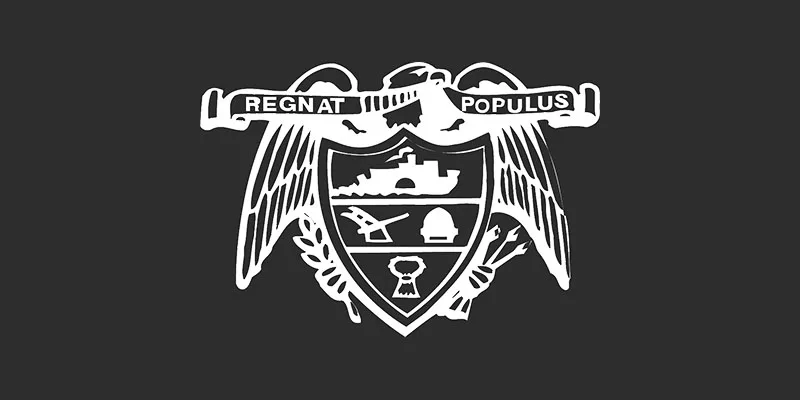
The NAACP needs to either change its name, or its focus. The defining word in the acronym, which was created more than a century ago, ought to be the third letter: Advancement.
However, in its own news releases promoting this year’s convention, which wrapped up Tuesday, the National Association for the Advancement of Colored People says it “advocates, agitates and litigates for the civil rights due to Black America.”
Political advocacy, agitation and litigation do not necessarily always add up to advancement for a group of people. And in the case of Black Americans, particularly, misplaced advocating, agitating and litigating has not alleviated or advanced the fundamental, foundational problem of illiteracy.
Illiteracy is a reliable predictor of individual ills in American society. Numerous studies link illiteracy to a long list of negative outcomes, including higher unemployment, lower wages, poorer health and greater likelihood of criminality.
About 85 percent of youth who wind up in the juvenile court system are classified as functionally illiterate. Seven out of 10 adult U.S. prison inmates can’t read above a fourth-grade level.
Nationally, two out of three American children can’t read at proficient levels in school. But that ratio worsens significantly for Black students. In far too many Arkansas schools, the percentage of Black elementary, junior high and high schoolers who meet the reading benchmark is in single digits.
The NAACP’s press statement promoting its 114th convention headlined the claim that its plenary sessions would “Highlight Black America’s Priorities.” The convention sessions would allow for discussion of “the most pressing issues of our time,” said organization President and CEO Derrick Johnson, with the purpose of “creating solutions that prioritize Black people.”
While “education” was mentioned among those pressing issues in the press release (it was listed fourth, after civil rights, criminal justice and economic development), when the actual plenary session unfolded on Monday the main education topic discussed was affirmative action.
At a time when nothing comes close to tilting the scales of college opportunity against Black kids more than illiteracy, the NAACP can’t even give the subject attention, much less advocacy.
Looking over the speaker roster for this year’s convention, one would get the impression that literacy wasn’t a problem at all for Black America. Not only was there not a K-12 teacher in the bunch, but nine of the 21 speakers were either an actor, musician, comedian or TV personality.
The convention featured a series of panel sessions, which would have been a great opportunity to underscore the nearly literal path paved from illiteracy to prison, and generate some practical, productive discourse on how to advance reading skills for Black kids, specifically.
Nope. Instead, it was as if session planners simply pretended there isn’t an illiteracy problem. For people who can’t read, advanced discussions on critical race theory, wealth-building and the “intersectionality” of racial justice and hate crimes come across as little more than “blah blah blah.”
Schools all across America are failing to teach millions of Black children to read, but the NAACP prioritizes the relative handful of race-related hate crimes the FBI counts each year (seven-hundredths of one percent of all reported crimes fall into that category).
In his speech to open the convention, NAACP chair Leon Russell denounced undefined “wars” on education and on teachers and teachers unions. During his remarks, he repeated the word “racism” twice, “bigotry” three times and “hate” 11 times.
He used the word “fight” eight times regarding various objectives, but the idea that improving Black literacy might be something worth fighting for evidently eluded him.
It’s not an overstatement to assert that until literacy improves in primarily Black communities, little else is likely to improve, either. And that makes it even harder to reconcile how the leading Black advancement association basically ignores the glaring illiteracy crisis in its annual national gathering.
NAACP branches in low-reading-scores Arkansas have their heads buried even further in the sand on the subject. Neither the Little Rock nor the NWA chapter websites mention illiteracy at all, and the Jacksonville chapter actively supported repealing the LEARNS Act–the first letter of which stands for Literacy initiatives–on its Facebook page.
Illiteracy isn’t just a school issue, it’s a people issue, and that’s what the P in NAACP is supposed to represent.
Leon Russell used Gospel verses to start his speech, but a better choice would have been the famous phrasing from 1st Corinthians to drive home the point that illiteracy cancels other gains.
If you have civil rights, but don’t have literacy, you can’t capitalize on citizenship. If you have opportunity, but don’t have literacy, you can’t advance economically. If you have equality, but don’t have literacy, you can’t achieve equity.
All of that is true not just for Blacks, but also Hispanics, Native Americans, everyone.
Stamping out illiteracy should be an easy clarion call for any proponent of social advancement. Improved literacy would benefit children and communities of all races, but Black ones most because they need it most.
There’s great political potential for whatever organization can lead our kids out of the illiteracy wilderness. Just don’t expect it to be the NAACP.
Dana D. Kelley is a freelance writer from Jonesboro.


